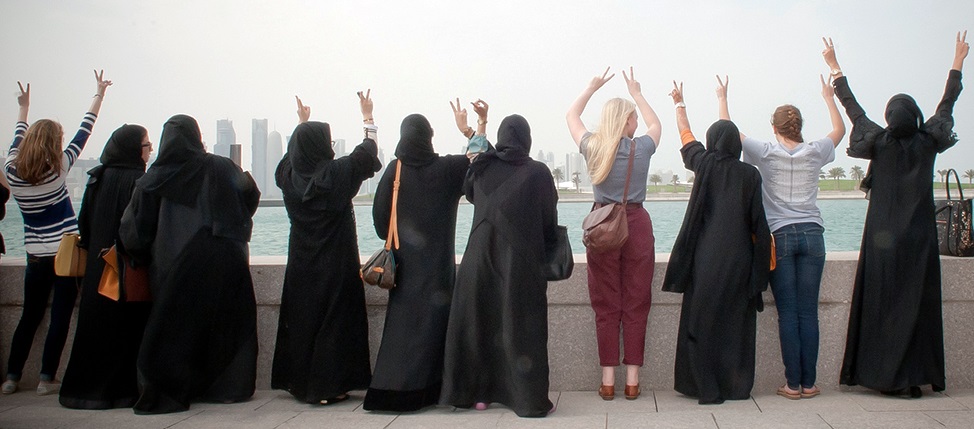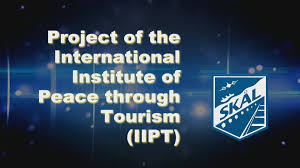Relaxation has its place, but with a little effort and a different approach, we can also use our vacation time to create change, if we so choose.
If you’re up for a challenge and feel like turning your vacation into a more inspiring experience, here’s a guide to representing your country abroad and building positive relationships along the way.
The Power of Citizen Diplomacy
“A ‘citizen diplomat mindset’ means being intentional when interacting with individuals from a different country by believing that one of your roles is to positively represent the United States,” explained Jennifer Clinton, president of citizen diplomacy non-profit Global Ties. “Our reality today is that citizens around the world are having much greater influence on local, national, and international relations.
Being a citizen diplomat means not only representing our country, but engaging in meaningful interactions across cultures to create shared understanding.
This can be as simple as engaging in more conversations with locals, but it’s not always easy to escape the tourism bubble, and it can sometimes be difficult to have meaningful exchanges with taxi drivers or strangers on the street.
“It’s OK to have balance,” said Richard Bobo of Cultural Vistas, an international exchange nonprofit. “Spend a few days in a resort. Then spend a day or two out in the country really experiencing the culture.”
Travel often teaches us that we have many things in common with people who appear to be very different from us, which in turn helps us see those commonalities through a new lens.
What are your passions? What issues do you care about? Wherever you’re going, there are people who share your passion or who are exploring innovative solutions to similar issues. Imagine how much you can learn — and share — by connecting with them.
Connecting Through Services
Plenty of services make it easier to connect with locals when you travel.
You can stay with local hosts through Couchsurfing and Airbnb. You can also use Couchsurfing to find other users to meet for a coffee or meal. Meetup.com is an excellent way to attend gatherings and participate in activities with locals who share your interests.
Vayable and Airbnb’s Experiences provide more structured options to meet locals. You can book unique travel experiences hosted by a local guide or expert, such as a dinner, workshop, or specialized tour. These experiences are usually based around a specific interest, offering the chance to learn from and connect with locals in a more personally meaningful way.

Volunteer With a Local Organization
Volunteering is a great way to connect with a community and make an impact. You’ll also learn how people in other countries are approaching problems in creative ways.
Search your destination country on idealist.org to find local organizations. Even if they aren’t able to accommodate you as a volunteer during your trip, you may be able to arrange a site visit or meeting to discuss issues, share knowledge, and perhaps find a way to collaborate.
Utilize Your Networks
Our own networks can easily lead to contacts across the globe. Sharing a mutual connection makes it easier to forge a relationship, and it’s more likely you’ll stay in touch after the trip.
Contact your university’s alumni office to see if they can connect you with alumni or former international students at your destination. Ask colleagues and tap into professional networks. Send a message out on social media. You may be surprised how many people have connections to your destination.
Community-based organizations devoted to international relations and citizen diplomacy exist across the country. They host dozens of international visitors each year.
“Global Ties has affiliates in 45 states,” said Clinton. “They often have strong networks of individuals around the world who would welcome the opportunity to interact with Americans to reciprocate the hospitality they received.”
Creating Shared Understanding
Mutual understanding is an important aspect of citizen diplomacy, but it’s hard to get there without context.
Leading up to your trip, read a few stories each day from local news publications. Do a Google News search for the country, including keywords for issues or topics that interest you.
You may also discover something you can incorporate into your trip, such as a local event or an organization whose work you want to learn more about.
Bringing Citizen Diplomacy Home
Citizen diplomacy doesn’t have to end with your trip. Just as you served as a representative of America while traveling, you represent the country you visited when you return.
You can continue to serve as a citizen diplomat by volunteering with international organizations and becoming a connector between your community and the rest of the world.
“True diplomacy is apolitical,” Bobo said. “The more people’s minds are opened, the more they realize there are other ways of living and doing things, the more the fear of the ‘other’ reduces.”
by: RACHAEL TAFT





